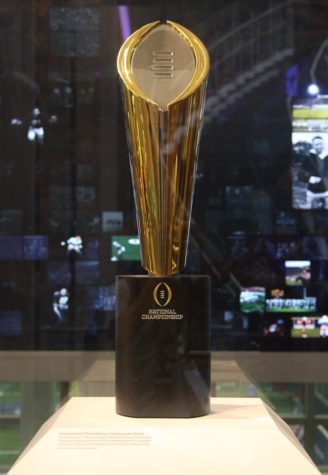Music should be a judgement free zone
The sounds we hear coming out of the radio divide us more than you think.

With so many different forms of music, one study cannot speak for them all.
Many people have strong opinions on specific genres or artists in our generation. The sounds we hear coming out of the radio divide us more than you think, and music influences us more than we know. Today, with so much division, understanding our own music is important to our unity as a whole. Connecting with others through hating music creates barriers around our understanding of others.
Austa Somvichian-Clausen, a staff writer at The Hill, writes, “One study shows a link between preferred musical genres and our capacity for empathy, with results across samples showing that empathy levels are linked to preferences even within genres.” David Greenberg, Psychology professor at the University of Cambridge, conducted that study. His reasearch shows how different kinds of music have different effects on our personality. The Hill trys to use this research to provoke us. They say that since different kinds of music provoke different emotions, we can judge people on their preferences. I would like to break down this argument and show how this is not the case.
With so many different forms of music, one study cannot speak for all. David Greenberg does a good job of presenting most genres but even his study cannot represent all. Why is this the case? Because we are all structured different. We all like what we like no matter what it’s based upon or where it leads us. Keeping an open mind about music isn’t the full narrative here. We need to understand our own preferences before we can understand each other. The Hill glosses over this point without a second thought.
How music changes us
Music is not only a tool we use for human expression, music is a tool we use for human connection as well. Music shows our thoughts and feelings, giving us an easy window for people to look in at our own personality. Thomas Chamorro-premuzic from Psychology Today states that, “Given that mood states are closely related to our personality (in fact, personality is to climate what mood is to weather), and given that people use music for emotional regualtion, a scientific understanding of musical preferences should provide the perfect window into a person’s soul.” His research shows the amount we care about what goes into our ears. We take for granted the effect music has on us. It motivates us, and it grounds us. We should notice the effect that other forms of music have on others, and be more open-minded.
One problem, however, is that everyone thinks their musical taste is the best. We base our feelings on what music should be from our own perspective. Most people ignore others opinions on music, and find genres to hate. This way of thinking creates a bubble where you only accept people who have the same opinions as you. This has become popular in recent generations with a tactic for separation from the old.
The “Out with the old, in with the new” problem
Generational angst has a lot to do with how we choose music today. Shutting down the thoughts of the past is commonplace among new generations. This is because older generations think they have the “soul” and they disregard the new age as “repetitive”. Omar Lizardo, an author in the sociology department at the University of Notre Dame, shows this effect. The study states, “refusal to reject the same musical styles as their older counterparts may be driven by attempts – on the part of younger entrants into the realm of the culturally privileged – to exploit their command of the esthetic disposition in a way that accrues “optimal distinctiveness” in relation to established incumbents.” In an attempt to be distinct, we have shut out older forms of mainstream music. This comes from the generation to generation split where one tries to get away from the other.
All around us is sound. Some we can hear, some we can not. For some it is in the background. For most it is in our hearts. We all have our own musical selves. We all hold our own opinions. Let us understand each other not for what we hate, but for what we love. Because we all find things we dislike. And it’s time to accept that one song may not have meaning to you, but it gives life to another. And that makes our world a little bit better

Conner Larsen is a tenth grade student at the Jenison Senior High. His hobbies include guitar, biking, and photography. He has played events at Park Theatre...









